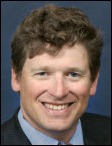HIStalk Interviews Seth Henry, Founder and CEO, Arcadia Solutions
Seth Henry is founder and CEO of Arcadia Solutions of Burlington, MA. The company announced Wednesday that it has been acquired by private equity firm Ferrer Freeman & Company and Arcadia’s senior management team.

Describe what Arcadia does and why it was time to bring in a new investor.
Arcadia is built on the premise that healthcare must do three things: bend the cost curve, change the incentives and payments to focus on outcomes, and connect and integrate disparate systems with IT.
To that end, Arcadia is focused on being the leader in helping the ambulatory market successfully adopt, integrate, and make decisions with IT. We believe this part of the market — where 46 percent of the care is delivered — has not been addressed by the IT vendor community while the main focus has been on “wiring” hospitals.
The changes in the overall system are driving health system executives to address the IT needs in the physician and ambulatory marketplace. To help with this initiative, Arcadia provides comprehensive services implementing, optimizing, and providing strategic decision support to this market, focusing on larger systems and aggregators.
Arcadia has established a proven track record and loyal customer base in the northeast US. However, we have reached a point where it would be helpful to work with a growth partner with deep experience in healthcare and health IT who could help drive an aggressive national expansion plan combined with a continued investment in forward-looking offerings for customers. FFC is that partner.
We’re also excited to have their senior management team join our board of managers, which includes Carlos Ferrer, David Freeman, and Ted Lundberg of FFC as well as Jim Crook, a healthcare IT industry veteran who was CEO of IDX Systems when it was sold to GE Healthcare for $1.2 billion, who will help us drive this strategy.
Ferrer Freeman & Company has been an investor in several healthcare IT related companies that were acquired by large entities, including PHNS (now Anthelio), Vitalize Consulting Solutions, and Webmedx. What do they bring to the table to enable the next level of Arcadia’s growth?
In addition to growth capital, FFC provides a deep understanding and strategic focus on the business of healthcare, having invested in more than 35 companies exclusively in this market. They have a broad network of senior executives in Arcadia Solutions’ target marketplace who have been very engaged in the direction of the business. They also have a committed partnership with management that is passionate and involved in the direction and growth of the company.
How has the company’s business changed over the years since HITECH went into effect and how do you see it changing in the next few years?
We do not see HITECH as the primary driver of the business. Our firm’s direction of focusing on measurable adoption and aligning IT with cost and quality was well established before HITECH was conceived and our rapid growth preceded HITECH.
While we think HITECH is directionally correct and consistent, it is not a primary reason our customers buy from us. Our customers in general have a broader purview and mission with respect to transforming healthcare with IT and this is reflected in our consistency of offerings and performance pre- and post-HITECH.
Arcadia has been involved with 2,500 EMR implementations in physician practices. What are the most important trends you’ve observed that you have incorporated into the company’s strategy?
We believe the industry in general has focused too much on the technology aspects and not nearly enough on the people. As a result, the definition of “done” is when the systems are live. Our definition of “done” is when the data in the system has reached a certain level of quality.
We also believe very strongly — and our data confirms — that the technology chosen can have very little to do with the ultimate results in terms of better performance, more efficiency, and happier physicians.
Scarcity of specifically trained resources and tight timelines driven by HITECH have created a healthcare IT consulting boom, which has in turn led to several high-dollar acquisitions. How do you see the healthcare IT consulting market playing out over the next 5-10 years?
As with all markets, there will be highs and lows, winners and losers. Our strategy is to stay laser focused on providing services with proven and measured value and results while building a great company in the process. The rest will take care of itself.
We are very confident that the healthcare market faces a very long road in getting completely wired and connected with IT and adapting and optimizing the business and delivery model in parallel. I have not met anyone close to this problem that thinks that HIT is not a growth market for 10 more years.


Neither of those sound like good news for Oracle Health. After the lofty proclamations of the last couple years. still…